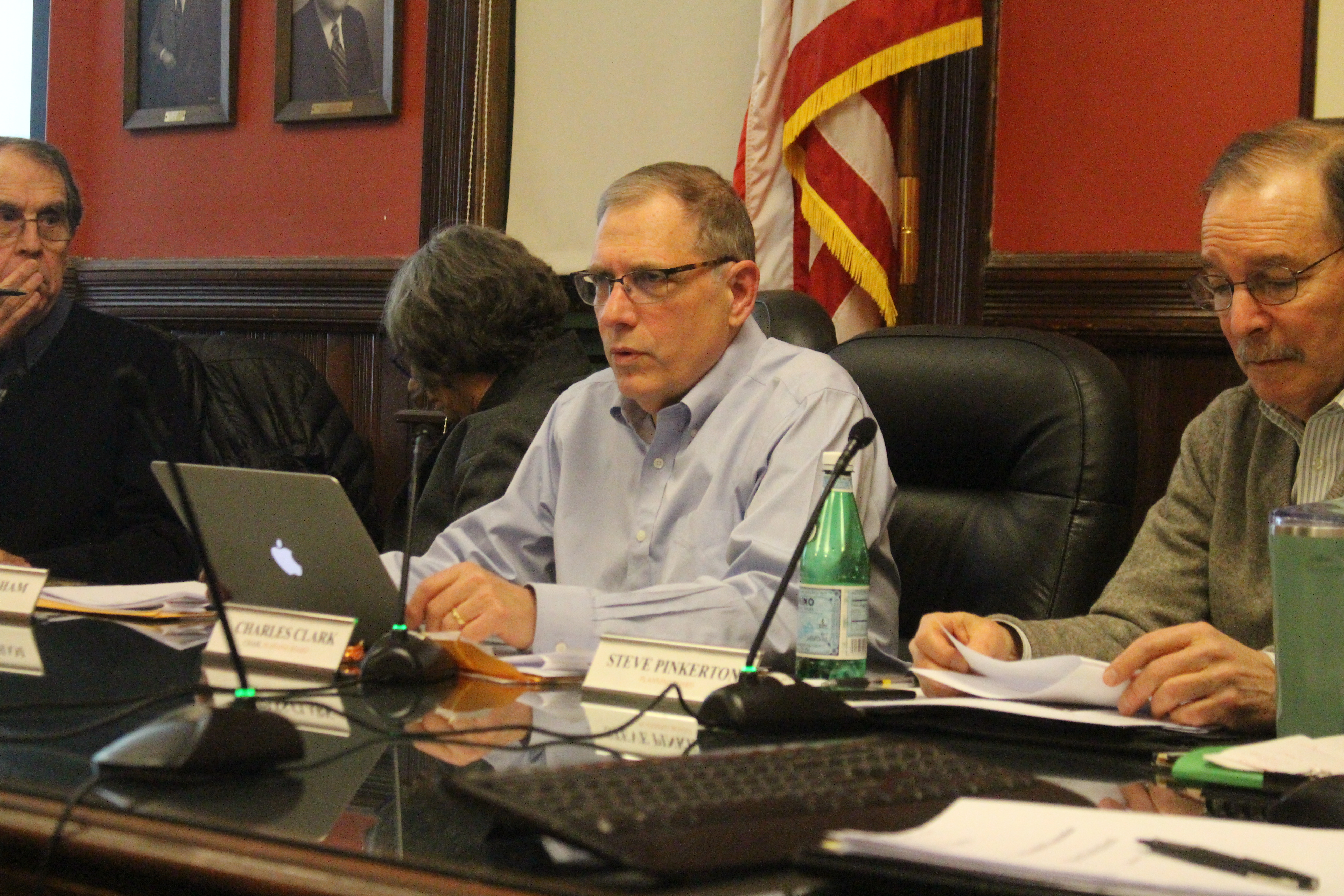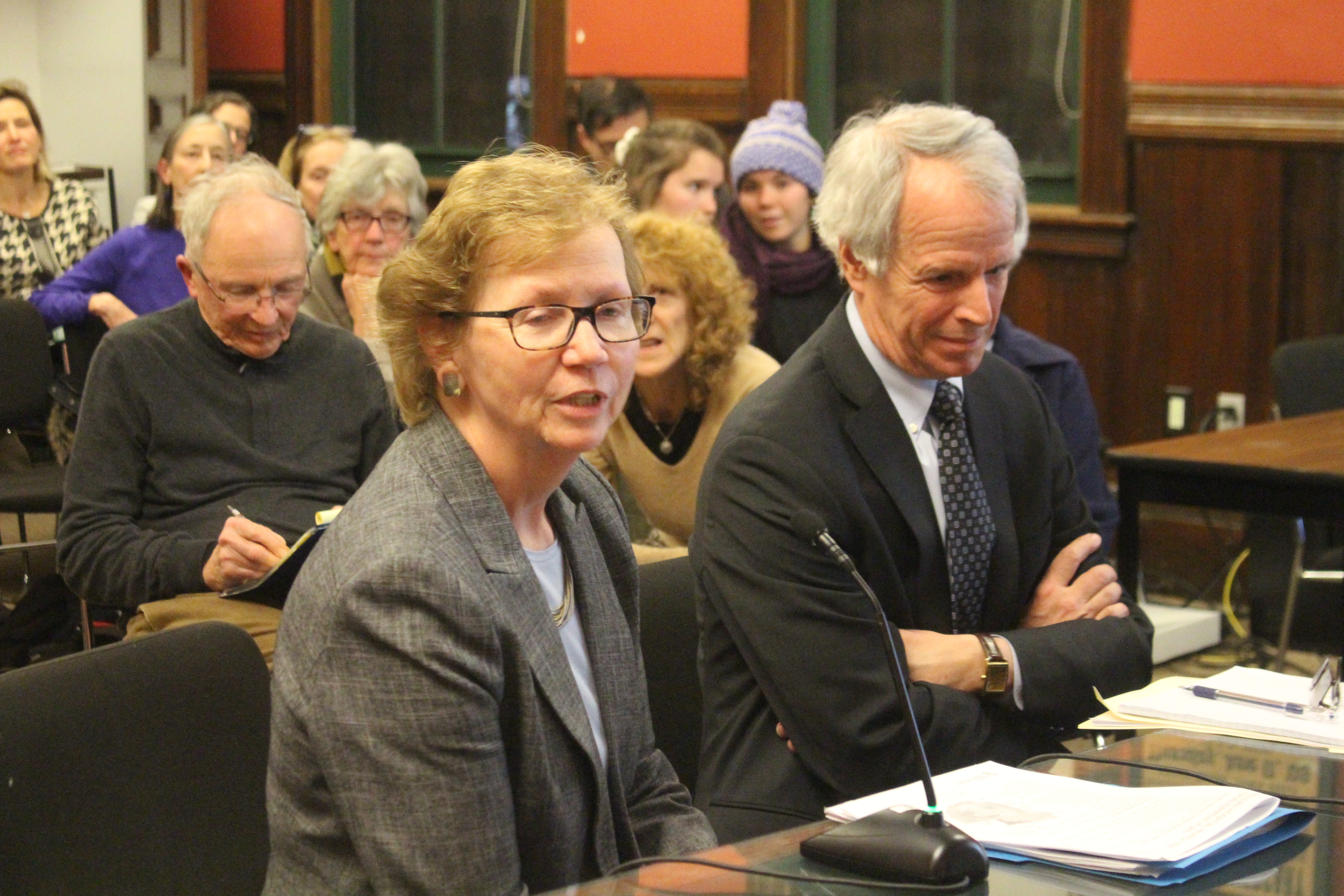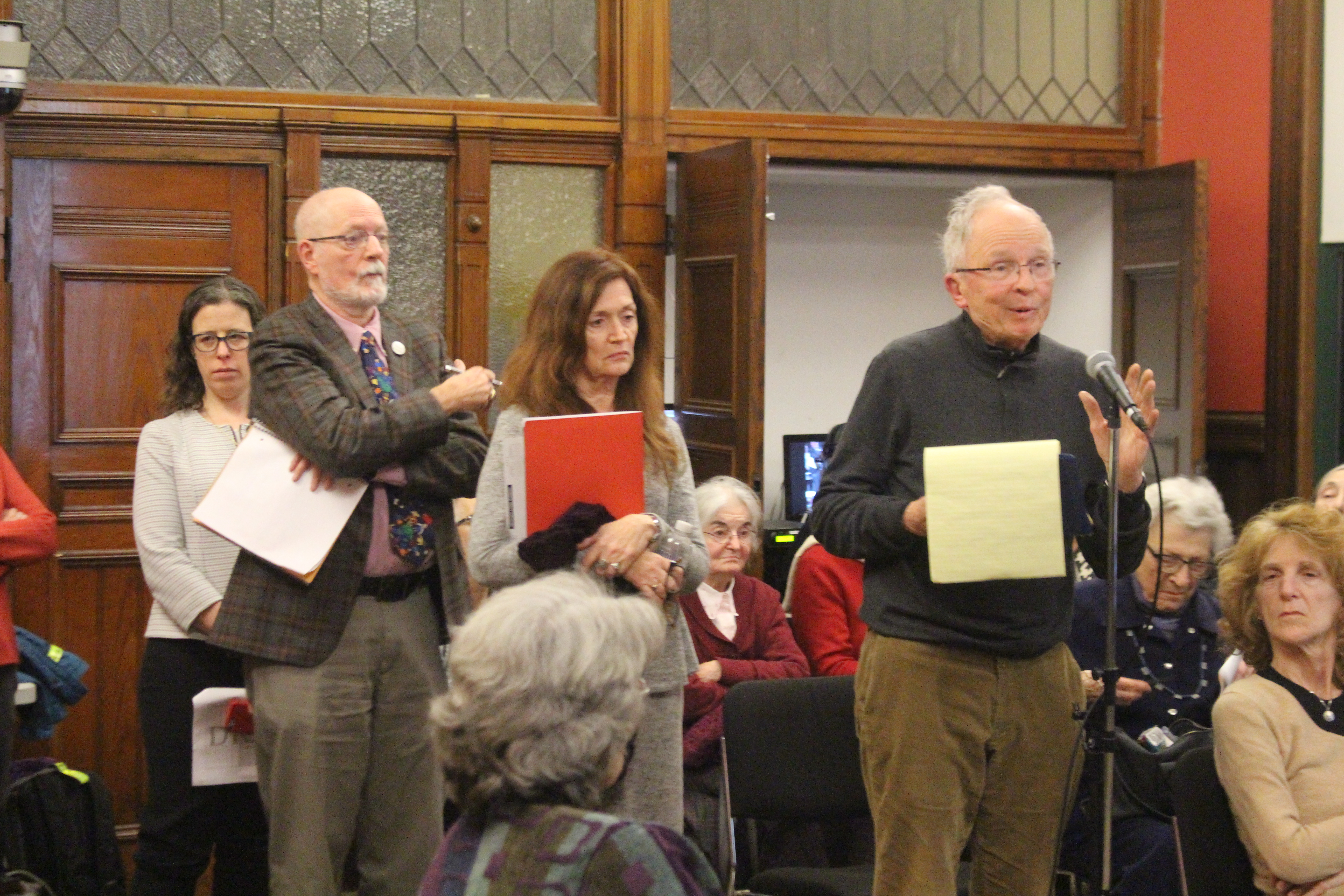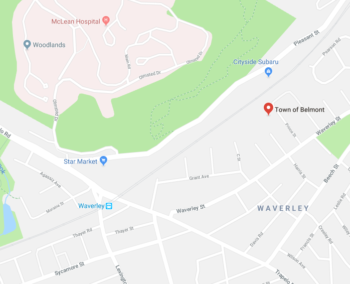Since the agreement, most of the land approved for redevelopment would become part of The Woodlands at Belmont Hill, a townhouse development. One of the two final open parcels is the senior-oriented Zone 3 consists of nearly 13 acres near the corner of South Pleasant and Trapelo and a similarly-sized Zone 4 set aside for Research and Development.
- Chuck Clark, chair of the Belmont Planning Board
- Michele Gougeon, McLean’s chief operating officer.



